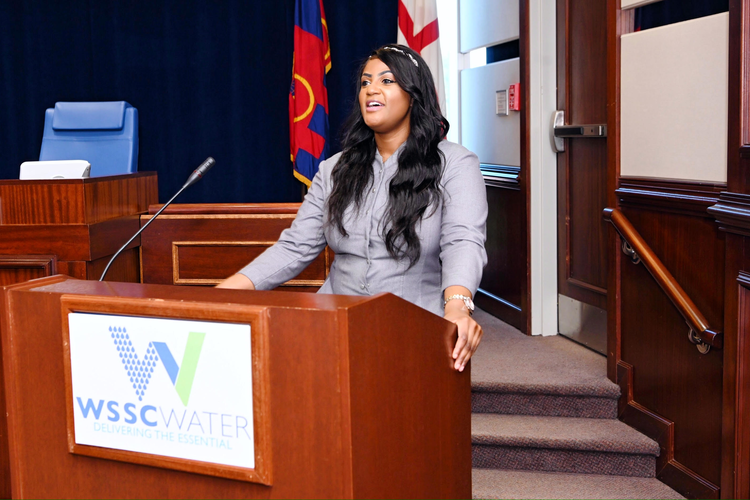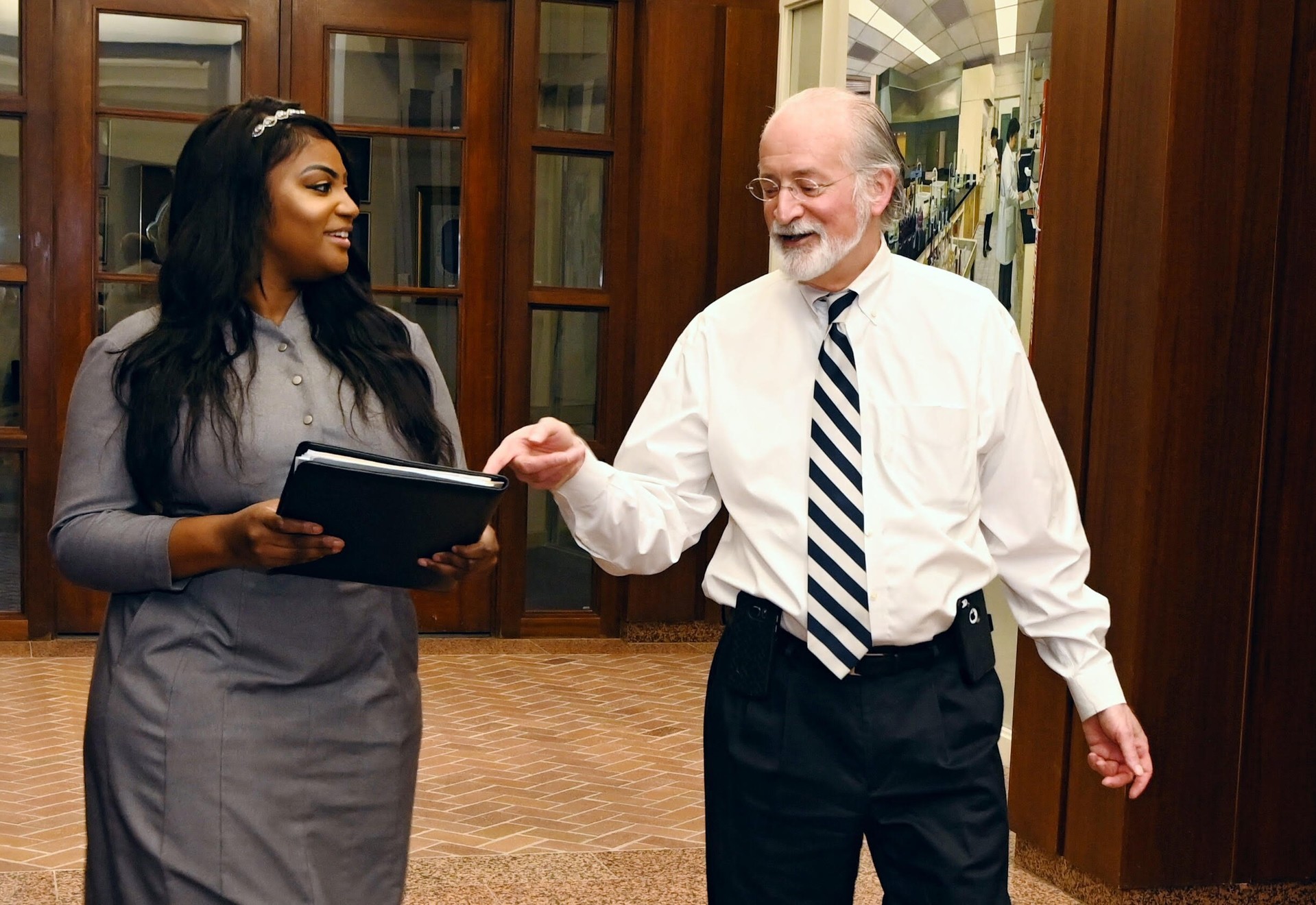Welcome to Thomas Insights — every day, we publish the latest news and analysis to keep our readers up to date on what’s happening in industry. Sign up here to get the day’s top stories delivered straight to your inbox.

Each quarter, Thomas will recognize the accomplishments of the next generation of industrial leaders through the NextGen for Industry award. Nominated by their peers or managers, these young professionals are driving industry into the future with innovative new ideas, exceptional thought leadership, and meaningful contributions to their area of business.
This quarter, Thomas has selected Rose Celestin, senior strategic sourcing lead at WSSC Water, a water and wastewater utility company, as the newest NextGen for Industry.

Although Celestin is our NextGen for Industry, she’s already deeply familiar with the exciting world of supply chain and boasts years more experience than her peers. She entered the field at just 14 years old when a woman from her church hired her as a purchasing technician. Celestin’s talent for purchasing was noticed shortly thereafter; Although she was hired as a purchasing technician, she left her first organization as the director of procurement.
“She allowed me to work for her as long as I’d get a work permit,” Celestin says. “So I started at the age of 14, and from there, she’s been a lot of help in grooming me to become a solid professional within strategic sourcing and procurement.”
Valuing Mentorship in Industry
After entering the industry at a very young age, Celestin learned early on the value of having a mentor to help her learn the ropes of her organization and position. In her experience, she found that her mentor kept her grounded among older peers who may not have initially respected her authority based on her age.
“I know that a lot of times people respect wisdom, and I guess people tie age to wisdom,” Celestin explains. “So when they look at you [and] you look a little young, they automatically assume that maybe ‘they don’t know what they’re talking about.’ It takes a lot of having to prove yourself.”
However, she credits her mentor with much of her success early in her career by helping her overcome the hurdle of earning respect at such a young age.
“It was all because of her advocacy. She was really a huge advocate for me. She supported me, made sure that I had a seat at the table. She was my voice,” Celestin says. “I really owe a lot of my career accomplishments to her for nurturing me and giving me the skills and the knowledge and providing a platform for me to grow as a professional.”
Building a Powerful Peer Network
As a young female minority in supply chain, Celestin has encountered no shortage of challenges, including some as the result of unconscious bias. She explains that although diversity and unconscious biases have improved significantly over time, her key to overcoming the challenges has been building a powerful network within her industry.
“It’s really important to make sure that you have someone in your corner that is willing to support you and advocate for you. There are a lot of challenges that come along with being in supply chain, especially when you’re young — female, as well,” Celestin explains. “The more visible you are and the more people you have in your network, people who you can reach out to whenever you’re dealing with anything or you have any questions about a career move or a challenge that you’re facing, that could also be a cushion to help overcome that hurdle as well.”
She advises that future industry professionals should expand their network to ensure an influential career and build a good support system for the challenges they may encounter, whether a result of age, race, or gender.
“One of my favorite sayings is, ‘It’s not about what you know; it’s about who you know,'” she explains. “But you also have to take it a step further. It’s not only about who you know but how well you know them.
“Your skills are going to be important,” Celestin says, “but your network is going to be even more important because the people who are able to advocate for you, the people who are able to support you, [are] really make a difference as far as getting your foot in the door, opening doors, [and having access to] opportunities that probably wouldn’t have [otherwise] been available to you.”

Working with Aligned Company Values
Although Celestin does work outside of her organization with the Institute of Supply Chain and Forbes to improve diversity in industry and supply chain, she explains that working at WSSC Water, which has a company culture that supports diversity, has definitely made an impact on her efforts.
When WSSC Water’s CEO gave a recent keynote address, she discussed her own career journey; Much of the story she shared really resonated with Celestin since she, too, had entered industry at entry-level and almost didn’t get hired because of her grades.
“Hearing our CEO really speak about her journey, that really reminded me of myself,” Celestin says. “So that gives me the inspiration to know that there are other people that have crossed the hurdles that I’m currently trying to cross or have crossed. It’s good to know that you can seek inspiration and good influence from people that have come before you.”
Celestin explains that WSSC Water as a company is also prioritizing diversity, furthering her own efforts.
“Being able to work at WSSC Water where they push diversity,” she explains, “also supports what I do outside of the organization as far as within the industry. It all goes hand-in-hand.”
Advocating for the Next Generation of Supply Chain Leaders
Celestin knows her introduction to supply chain was unique and doesn’t expect everyone to begin their career at 14, but she does have some good advice for those looking to start their industry journey as a young leader herself.
“Being a leader, for me, means being able to go above and beyond to make the people that you work with happy and comfortable, giving them the confidence that they need to know that the job is going to be done; [It means] going above and beyond to meet the needs of your stakeholders, your coworkers, or anyone that you work with and just providing them that level of trust,” Celestin says.
However, she also explains that being a leader doesn’t necessarily mean you’re “the boss.”
“You don’t have to exactly be a manager to be a leader. You can be a leader in the way you carry yourself, in the way you tackle your challenges, in the way you approach your day-to-day functions. So there are many facets to being a leader that doesn’t specifically tie into the title,” she advises.
Image Credit: Provided by Rose Celestin.


